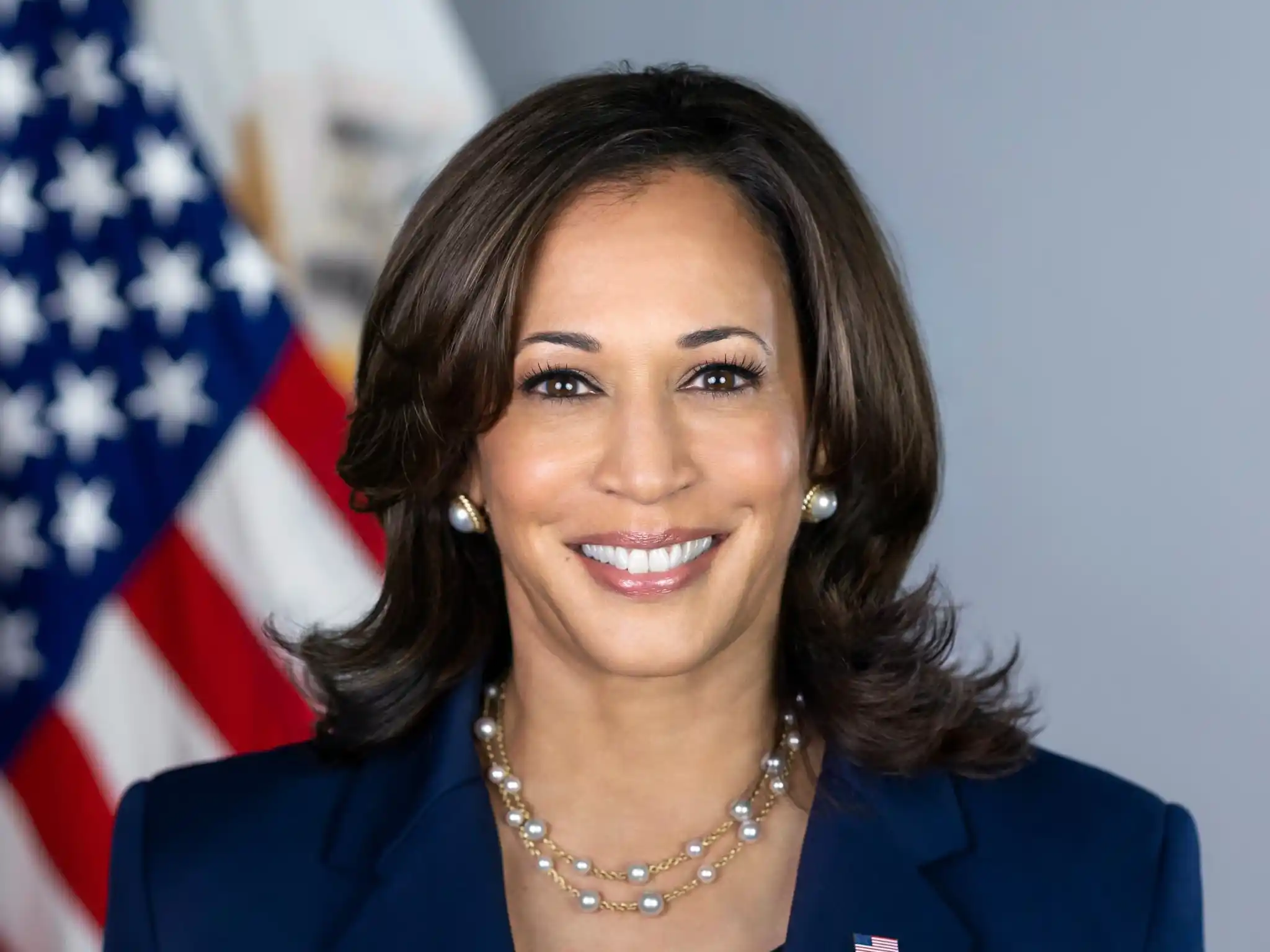Kamala Harris: Presidential ? (EN)

https://www.whitehouse.gov/administration/vice-president-harris/
Introduction
Kamala Harris is an iconic figure in contemporary American politics. As the first woman, first African-American, and first person of South Asian descent to hold the office of Vice President of the United States, Harris has made history with her unique trajectory and accomplishments. This article traces her journey from childhood to her potential presidential candidacy, highlighting key moments in her life and career.
Youth and Education
Kamala Devi Harris was born on October 20, 1964, in Oakland, California. She is the daughter of Shyamala Gopalan, a breast cancer researcher of Indian origin, and Donald Harris, a Jamaican economist. Both her parents were civil rights activists who greatly influenced her political and social commitment.
Her Mother's Indian Origins
Shyamala Gopalan was born on April 7, 1938, in Madras (now Chennai), in the state of Tamil Nadu, India. The daughter of P. V. Gopalan, a senior official in the Indian government, and Rajam Gopalan, a women's rights activist, she grew up in a family that valued education and social engagement. Shyamala earned her degree in science from the University of Delhi before moving to the United States at 19 to pursue graduate studies at the University of California, Berkeley, where she obtained a Ph.D. in endocrinology and nutrition.
Shyamala worked as a scientist at the Lawrence Berkeley National Laboratory, conducting pioneering research on hormones and breast cancer. In addition to her scientific work, she raised her daughters, Kamala and Maya, in an environment that blended Indian cultural traditions with civic engagement. Shyamala was actively involved in civil rights movements, a passion she passed on to her daughters.

Harris's Multicultural and Engaged Upbringing
Kamala grew up in a multicultural and socially conscious environment. She attended Thousand Oaks Elementary School in Berkeley, where she was exposed early on to the social and political challenges of her time. After her parents' divorce, Harris and her sister Maya were primarily raised by their mother, who instilled in them values of social justice and activism.
Kamala Harris pursued her education at Howard University, a historically black university in Washington, D.C., where she earned a degree in political science and economics. She then studied at the University of California, Hastings College of the Law, where she obtained her law degree.
Early Legal Career
After graduating from law school, Kamala Harris began her career as a deputy district attorney in Alameda County, California, where she worked on cases involving sexual assault, drug trafficking, and violent crimes. Her dedication to justice and competence quickly gained recognition, leading her to increasingly prominent positions.
In 2003, she was elected District Attorney of San Francisco, becoming the first woman and the first person of color to hold this position. During her tenure, Harris implemented several important reforms, particularly in youth offender rehabilitation and combating hate crimes. She also faced criticism for some of her policies, including her initial reluctance to prosecute police brutality cases.
Political Career in California
In 2010, Kamala Harris was elected Attorney General of California, becoming the first woman and the first person of color to hold this office. During her two terms, she tackled major issues such as the foreclosure crisis, criminal justice reform, and consumer rights protection. She also worked to enhance transparency and accountability in law enforcement.
One of the defining moments of her tenure was her decision not to defend Proposition 8, a California ballot initiative banning same-sex marriage. This decision played a key role in the fight for LGBTQ+ rights in the United States.
United States Senator
In 2016, Kamala Harris was elected United States Senator for California, succeeding Barbara Boxer. As a senator, she quickly established herself as a progressive and influential voice within the Democratic Party. She served on several important committees, including Intelligence, Judiciary, and Homeland Security.
Harris advocated for reforms in criminal justice, healthcare, environmental protection, and civil rights. She was also a vocal critic of the Trump administration, notably during Senate hearings, where she demonstrated her intellectual sharpness and questioning skills.
Vice Presidential Candidacy and Election
In January 2019, Kamala Harris announced her candidacy for the Democratic nomination for the 2020 presidential election. Although her campaign initially generated some enthusiasm, she faced challenges in maintaining momentum and ultimately suspended her campaign in December 2019.
In August 2020, Joe Biden selected Harris as his running mate, making her the first Black woman and the first person of South Asian descent to be nominated for Vice President by a major party. Their campaign focused on national unity, social justice, and combating the COVID-19 pandemic. In November 2020, Biden and Harris won the election, marking a historic victory.
Role as Vice President and Future Prospects
Since taking office in January 2021, Kamala Harris has played a key role in several Biden administration initiatives, including COVID-19 vaccination efforts, immigration reform, and promoting racial equality. She has also been tasked with leading diplomatic efforts to address the root causes of migration from Central American countries.
In 2023, Kamala Harris continued to focus on crucial issues such as voting rights, women's rights, and climate policies. She also strengthened her influence on the international stage, meeting with various world leaders to discuss economic cooperation and global challenges. Her active role in these areas has reinforced her position as a national leader.
With the approach of the 2024 elections, Joe Biden announced that he would not run for a second term due to health and age considerations. Kamala Harris was chosen to replace him as the Democratic Party's candidate. Her extensive experience, high public profile, and commitment to social justice and equality make her a leading candidate. Her ability to navigate current challenges and propose concrete solutions enhances her stature and potential to become the first female president of the United States.
